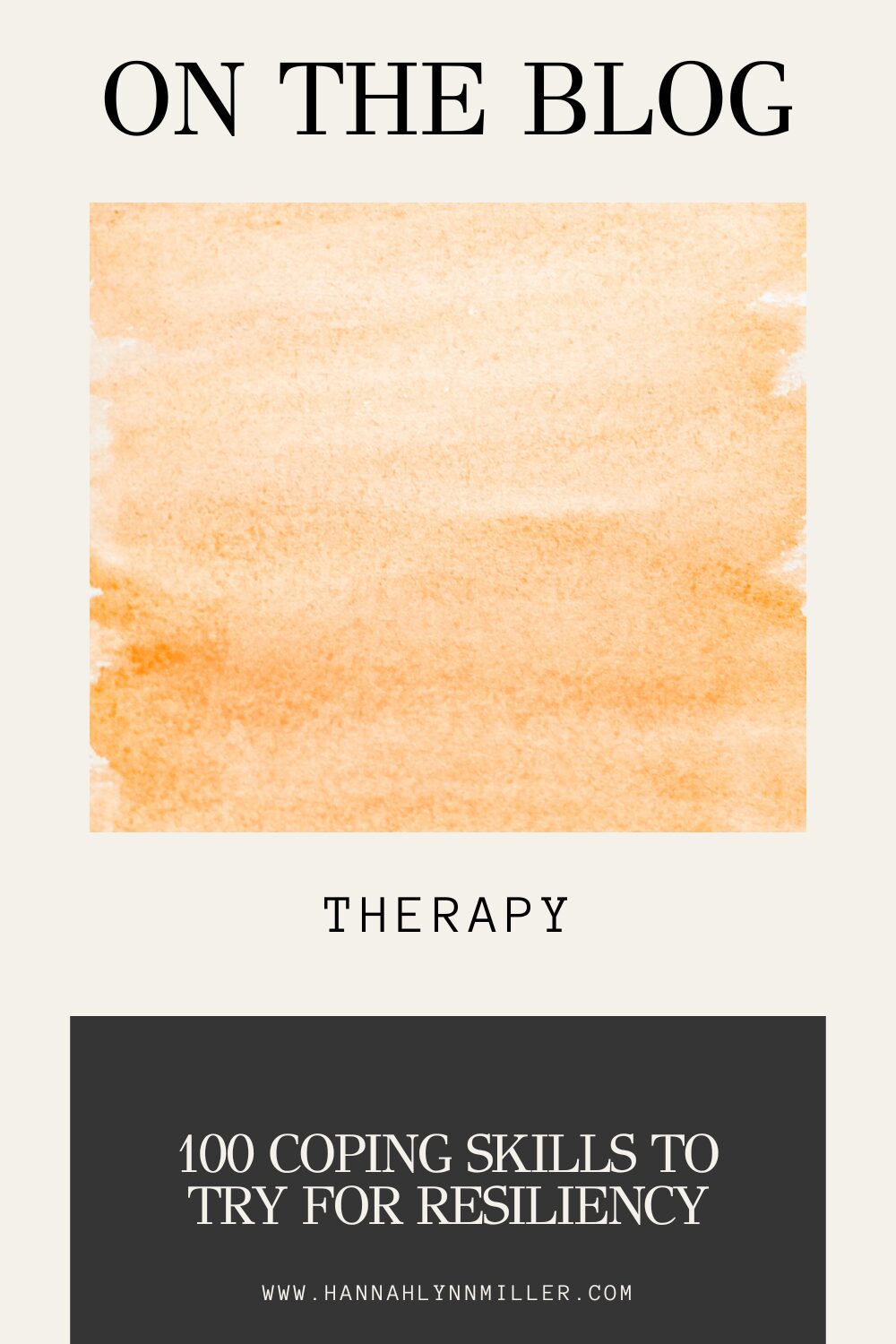
Many of you know my story, but I became interested in becoming a mental health therapist when a friend of mine suffered from depression and attempted (was not successful) to take his life. That’s why September is a time for me to think about ways to bring awareness to suicide prevention. The more we talk about a hard topic like this one, the more others will know the signs and may be able to save a life. Suicidal ideation is an indicator that something is not right. and can be a silent killer. That’s why starting with knowing how to support your friend who struggles with their mental health is a great place to start.
Suicidal ideation is the broad that describes a preoccupation with death, suicide, or self-harm.
There are two types of suicidal ideation:
- passive: a person has specific thoughts of suicide, of “not wanting to be alive,” or “not wanting to wake up in the morning” but doesn’t intend or plan to commit the action
- active: a person not only thinks about suicide but intends to commit the action and plans how to do it
Not everyone with suicidal ideation acts on it, making it impossible to predict who will or won’t act on these thoughts or ideas.
Psych Central
Supporting a friend with their mental health can be an incredibly challenging task. It requires a deep understanding of their struggles, empathy, and patience. It can be difficult because mental health issues are complex and vary from person to person. What works for one person may not work for another. It’s essential to educate oneself about mental health and the specific condition your friend is going through. Moreover, it can be emotionally draining to witness a loved one experience pain and confusion. It takes a toll on your own mental well-being as you try to navigate through their ups and downs. However, despite the difficulties, supporting a friend with their mental health is an act of true friendship and compassion. By being there for them, offering comfort, listening without judgment, and encouraging them to seek professional help, you can make a positive difference in their life.
Supporting a friend who is struggling with their mental health is incredibly important. Here are some steps you can take to help your friend:
1. Initiate a Conversation:
- Approach your friend in a caring and non-judgmental manner. Express your concern for their well-being.
- Ask open-ended questions like, “How have you been feeling lately?” or “Is there something on your mind that you’d like to talk about?”
- Show empathy and understanding: Let your friend know that you are there for them and that you care about their well-being. Listen to them without judgment and validate their feelings. Remember, sometimes just being there and lending an ear can make a big difference.
- Be patient and give them time to open up. Some people may need time to trust and share their feelings.
2. Listen Actively:
- When your friend talks, listen attentively without interrupting or offering solutions right away.
- Show empathy and validate their feelings. Let them know you understand their struggles and that it’s okay to feel the way they do.
- Avoid minimizing their feelings or saying things like “just snap out of it” or “it’s not that bad.”
- Take notice if your friend is talking about not wanting to live anymore. Ask clarifying questions to see if your friend not only thinks about suicide but also has an action plan. If your friend has both you should call 988
3. Offer Your Support:
- Let your friend know that you are there for them, and that they don’t have to go through this alone.
- Ask if there’s anything specific you can do to support them. Sometimes, just knowing someone cares can make a big difference.
- Offer practical assistance: Sometimes, individuals dealing with mental health challenges may have difficulty completing everyday tasks. Offer practical assistance, such as helping with chores, running errands, or cooking meals. These small gestures can alleviate some of the burden and show your friend that they are not alone.
4. Encourage Professional Help:
- Suggest that your friend seek professional help, such as therapy or counseling. Offer to help them find a therapist or accompany them to their first appointment if they’re comfortable with it.
- If they are in immediate danger or experiencing severe distress, encourage them to contact a crisis helpline or go to the nearest emergency room.
5. Be Patient and Non-Judgmental:
- Understand that recovery from mental health issues takes time. Your friend may have good days and bad days, and setbacks are common.
- Avoid placing blame or making them feel guilty for their condition. Mental health struggles are not their fault.
6. Stay Connected:
- Keep in touch with your friend regularly, even if it’s just a simple text or call to check in. Isolation can worsen mental health issues.
- Invite them to engage in activities you used to enjoy together, but respect their boundaries if they decline.
7. Educate Yourself:
- Take the time to learn about your friend’s specific mental health condition. Understanding what they’re going through can help you offer better support.
- Read more on mental health issues such as anxiety or depression, so that you can better understand what your friend may be going through. This knowledge will enable you to provide better support and offer appropriate resources if necessary.
8. Encourage Self-Care:
- Suggest self-care activities like exercise, meditation, or relaxation techniques that may help alleviate some of their symptoms. Offer to participate with them if they’re open to it.
- Encourage your friend to engage in self-care activities that can help improve their mental well-being. This could include exercise, engaging in hobbies, practicing mindfulness, or connecting with nature. Encourage them to prioritize their own well-being and remind them that taking care of themselves is essential.
9. Respect Their Privacy:
- Your friend may not want to share everything, and that’s okay. Respect their boundaries and don’t press them to divulge more than they’re comfortable with.
- Respect boundaries: While it’s important to be there for your friend, it’s equally important to respect their boundaries. If they need space or time alone, honor their request. Everyone copes with mental health challenges differently, so be understanding and adapt to their needs.
10. Take Care of Yourself:
- Supporting a friend with mental health issues can be emotionally draining. Make sure you also take care of your own mental and emotional well-being. Seek support from other friends, family, or a therapist if needed.
Remember that you’re not a substitute for professional help. Encourage your friend to seek assistance from trained mental health professionals when necessary. Your role is to provide support, understanding, and a caring presence during their journey toward recovery. Remember, supporting a friend with mental health struggles can be challenging, but your presence and support can make a significant difference in their journey toward recovery. Stay responsive, understanding, and patient, and don’t hesitate to seek guidance from a professional if needed. As always start therapy with Hannah Miller by visiting the information below.
Start Therapy Today
In person sessions 53 W. Jackson, suite 1615 Chicago 60604
Visit: https://hannahlynnmiller.com/therapy/ or Pneumachicago.com
Email: [email protected]
Fighting Depression: 12 Practical Strategies for Reclaiming Your Life
Depression can be an overwhelming and isolating experience, but there are ways to fight back and reclaim your life. In this post, we’ll explore 12…
How to Cultivate More Empathy
Empathy is the ability to understand and share the feelings of others. It’s the bridge that connects us, fostering compassion and kindness. Empathy is needed…
100 Coping Skills to Try for Resiliency
The Importance of Coping Skills Life can be incredibly challenging at times, filled with stressors and obstacles that can impact our mental and emotional well-being.…
How to Stop the Conflict Cycle in Your Relationship
Getting out of a conflict cycle in your relationship can feel overwhelming. You are constantly over thinking or feeling shut down and you’re not feeling…
The Important Role of Faith-Based Counseling in Mental Health
Faith-based counseling is an approach that integrates spiritual beliefs with psychological practices to provide holistic support for mental health. For many individuals, faith is a…
How to Utilize a Planner for Better Mental Health
When life feels overwhelming and there’s so many things pulling for your attention prioritizing your mental health has become increasingly challenging. One simple yet effective…






